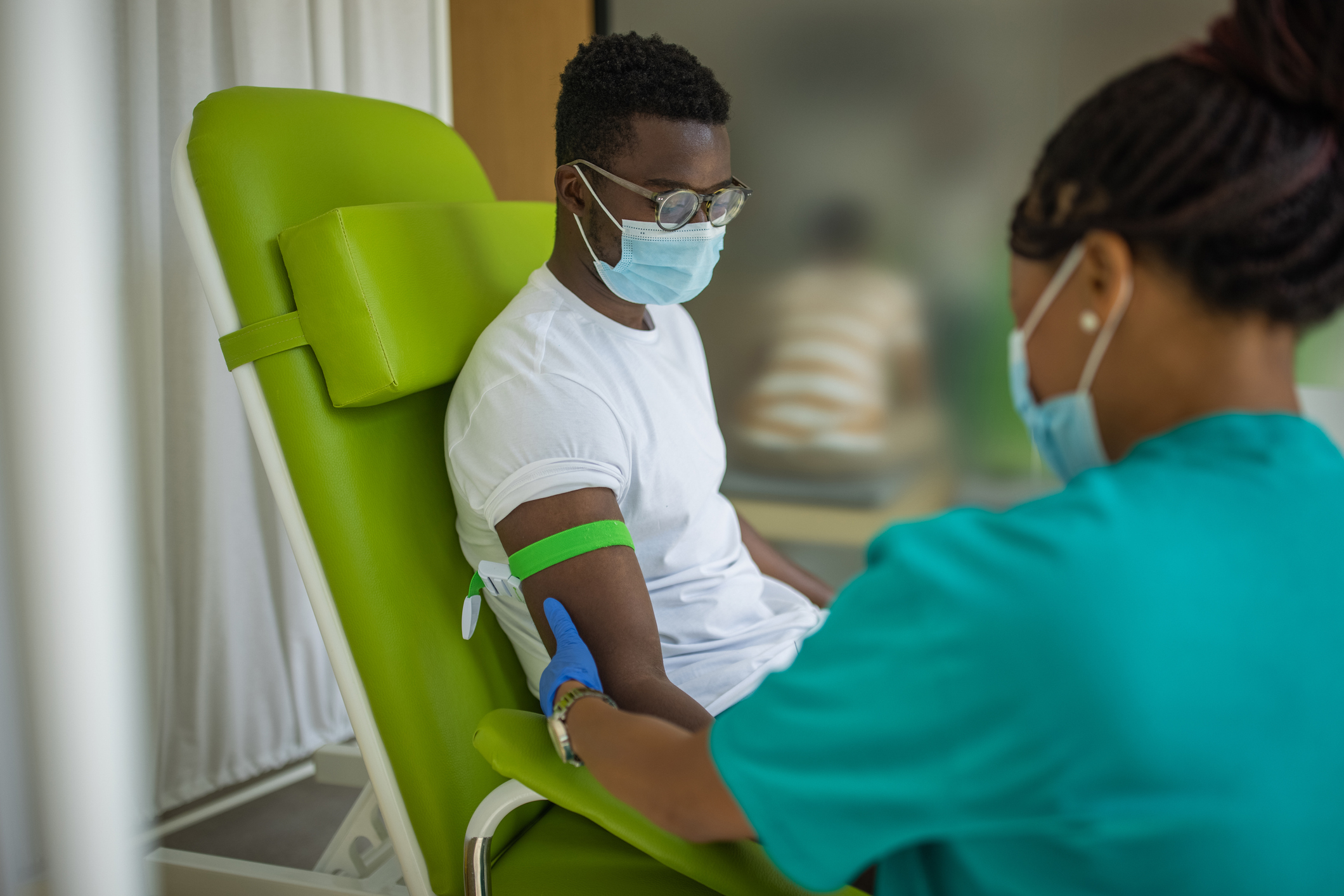
Getting a blood transfusion probably isn't something you think about every day. But many people donate blood for exactly that purpose — and one day, you might find yourself on the receiving end. Here's why you might need a transfusion and how the procedure works.
What Is a Blood Transfusion?
According to hematologist Dr. Bilal Farooqi, a blood transfusion is "when you take blood from one donor and give it to another beneficiary.” Donated blood is provided through a tube placed into a patient’s vein.
Dr. Farooqi adds that all donated blood is typed and screened for diseases such as HIV and hepatitis and other viruses. It's then usually separated into its parts — red cells, white cells, plasma, and platelets — so that a patient can receive what they need the most.
Why You Might Need a Blood Transfusion
You might need a blood transfusion for several reasons. One of the biggest ones, Dr. Farooqi says, is trauma. A sudden loss of blood after an accident requires immediate and urgent replacement, sometimes with whole blood or, more often, just red blood cells. Red blood cells, he says, "pick up the oxygen from the lungs and carry it to the rest of the body." A blood transfusion is a lifesaving procedure in these cases.
Anemia is another reason for a transfusion. Anemia occurs when the hemoglobin, which carries oxygen in red blood cells, falls below a healthy level. It's common in women who menstruate simply because they lose blood monthly. But that kind of anemia is mild and usually only requires treatment with iron or other supplements.
More serious types of anemia associated with conditions such as inflammatory bowel disease and cancer may warrant transfusions. "You could have a very long slow bleed in the GI tract," Dr. Farooqi says, "or you’re not able to make enough blood because you're missing the ingredients like B12. Or the factory making the blood, such as bone marrow, is not working well."
Where Are Blood Transfusions Done?
If the situation is traumatic, the transfusion will occur in a hospital setting. But if it's non-life-threatening, Dr. Farooqi says Summit Health has transfusion centers at the Berkeley Heights and Florham Park sites in New Jersey.
A transfusion can take several hours, and you receive the blood while sitting or lying down. A nurse monitors you while it takes place, looking for signs of fever, increased or decreased heart rate, or changes in blood pressure. You should speak up if you feel shortness of breath, chest pain, itching, chills, or any unusual symptoms during the transfusion.
What Are the Benefits Versus the Risks?
"Blood transfusions in a life-threatening situation are necessary," Dr. Farooqi says. In chronic but severe anemia, the benefits are less emergent and immediately obvious but just as important: Simply put, patients feel less fatigued and more energetic.
Risks are rare, Dr. Farooqi notes, but can include allergic reactions, reactions to the antibodies in the blood, and bloodborne infections.
Other rare but serious problems include your immune system attacking the red blood cells, which happens when the blood isn't a good match or your immune system is hypervigilant, and the white blood cells attacking the bone marrow. If you're at risk for any of these complications, your doctor will treat you so that the benefit is greater than the risks involved.
